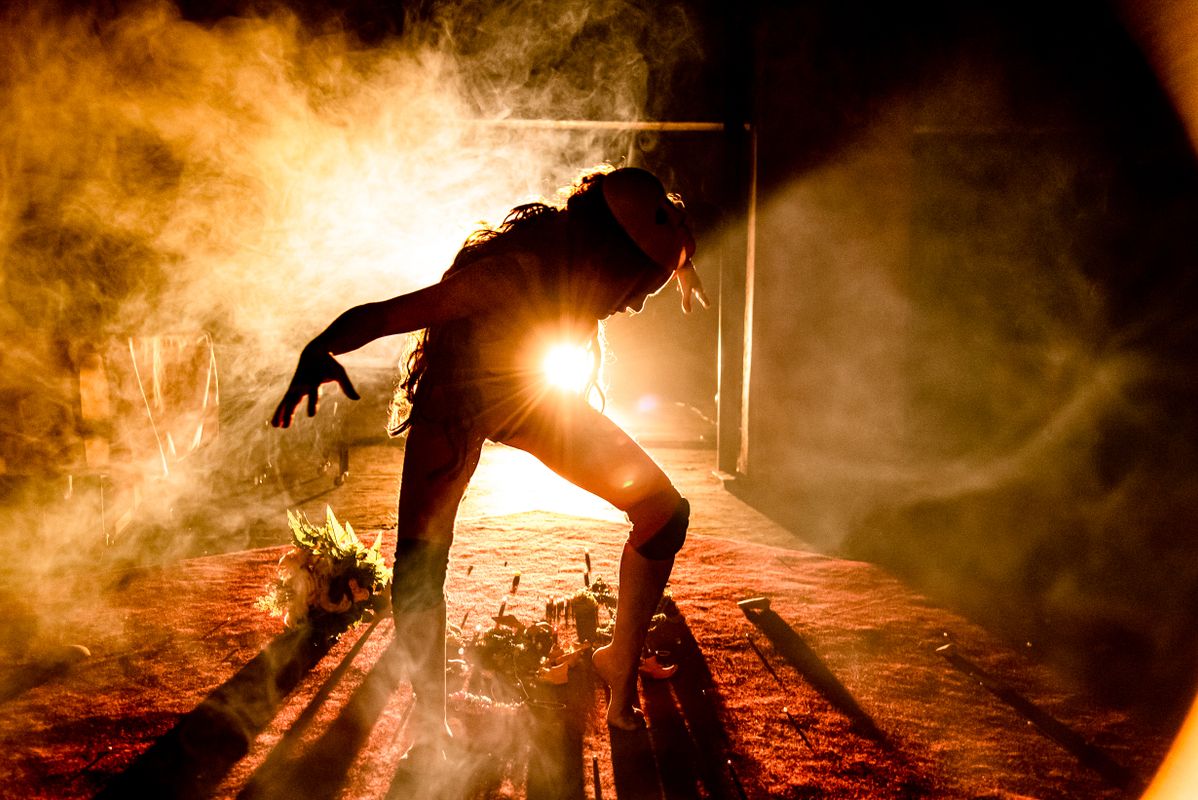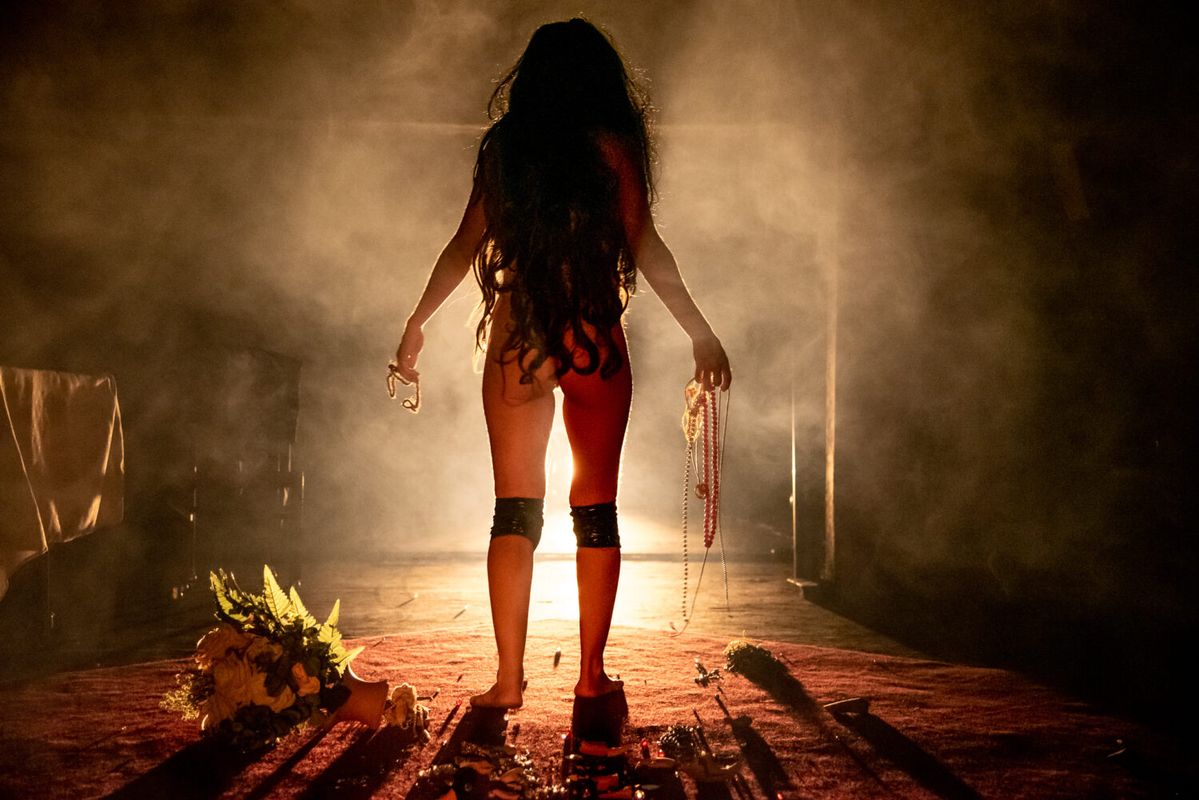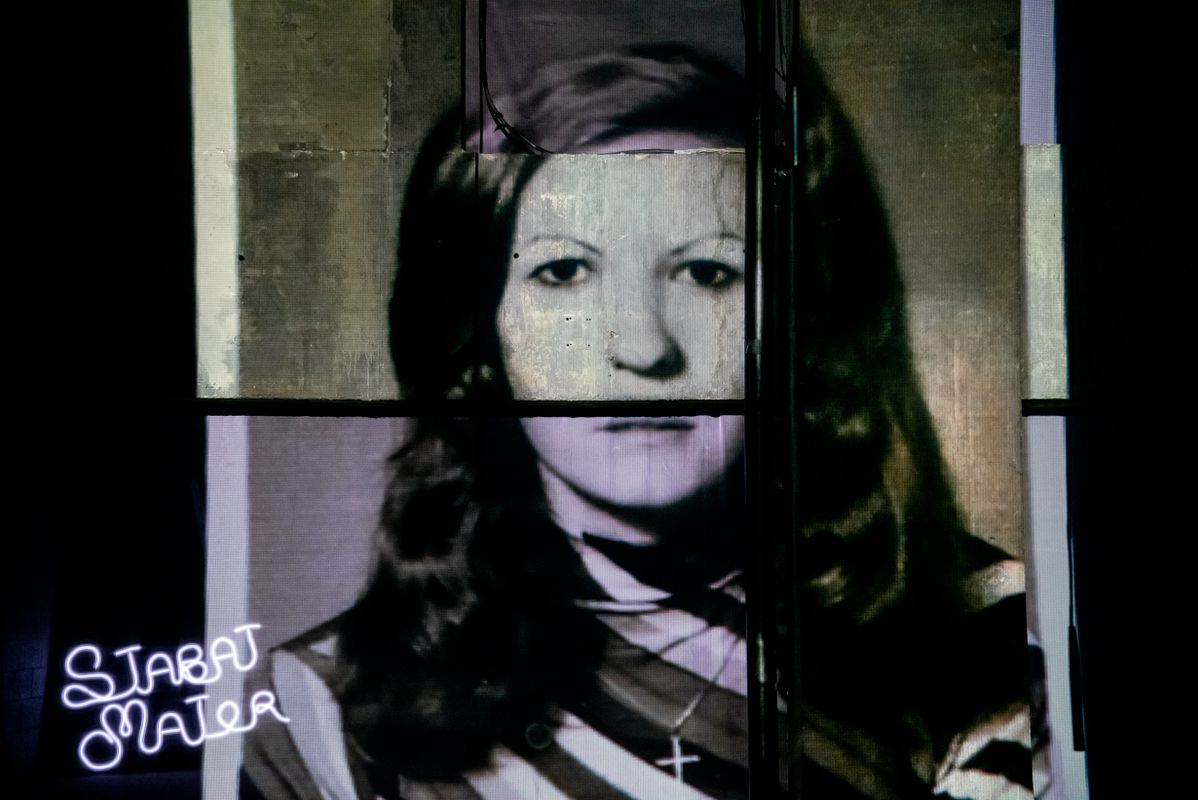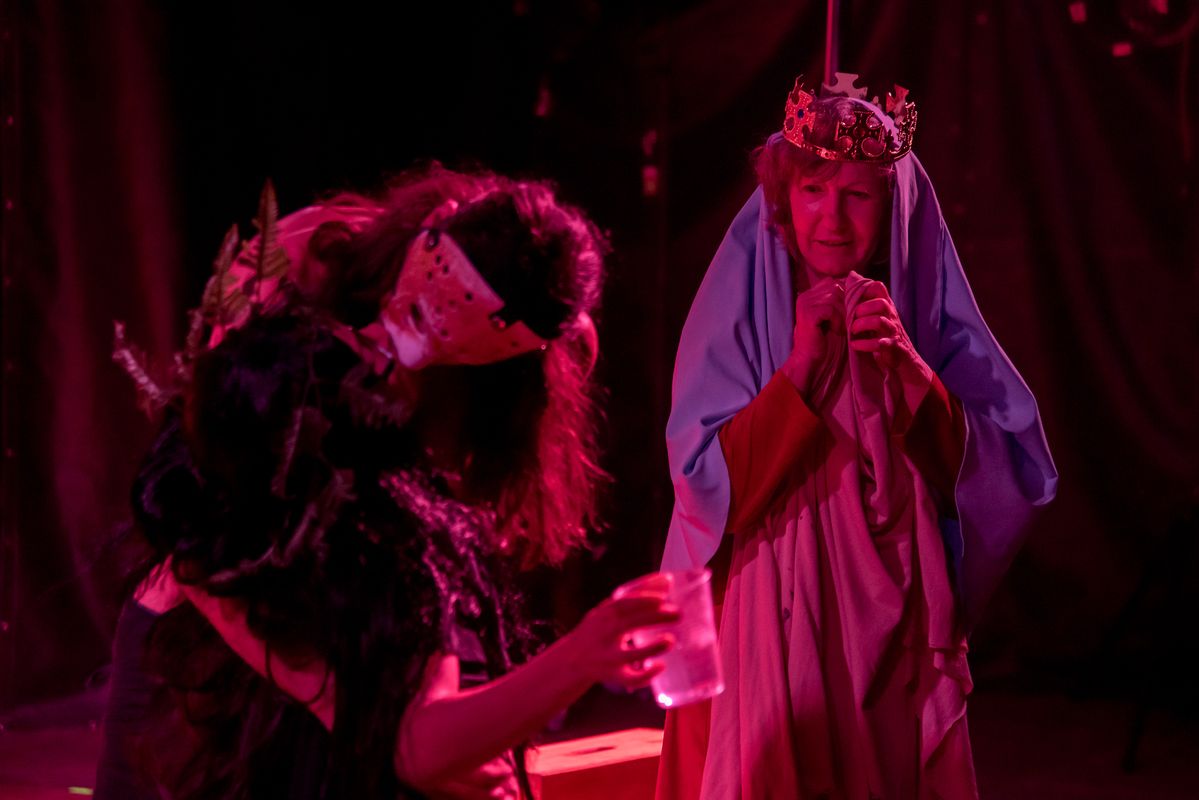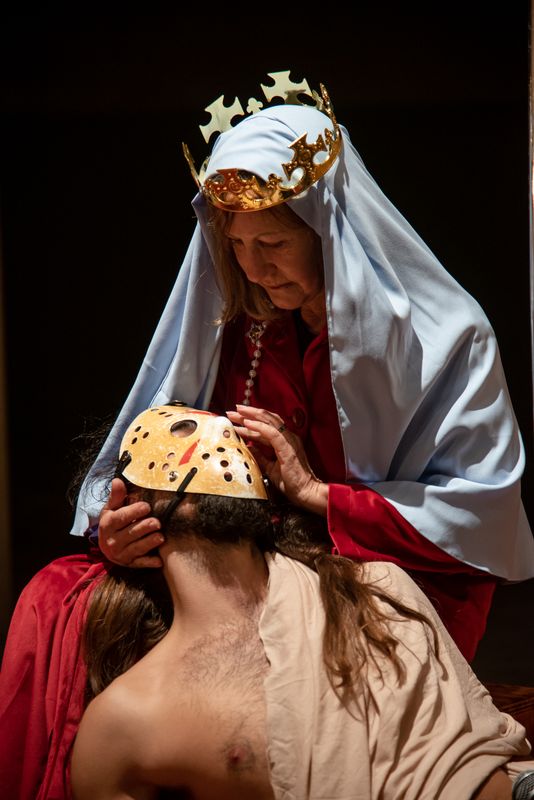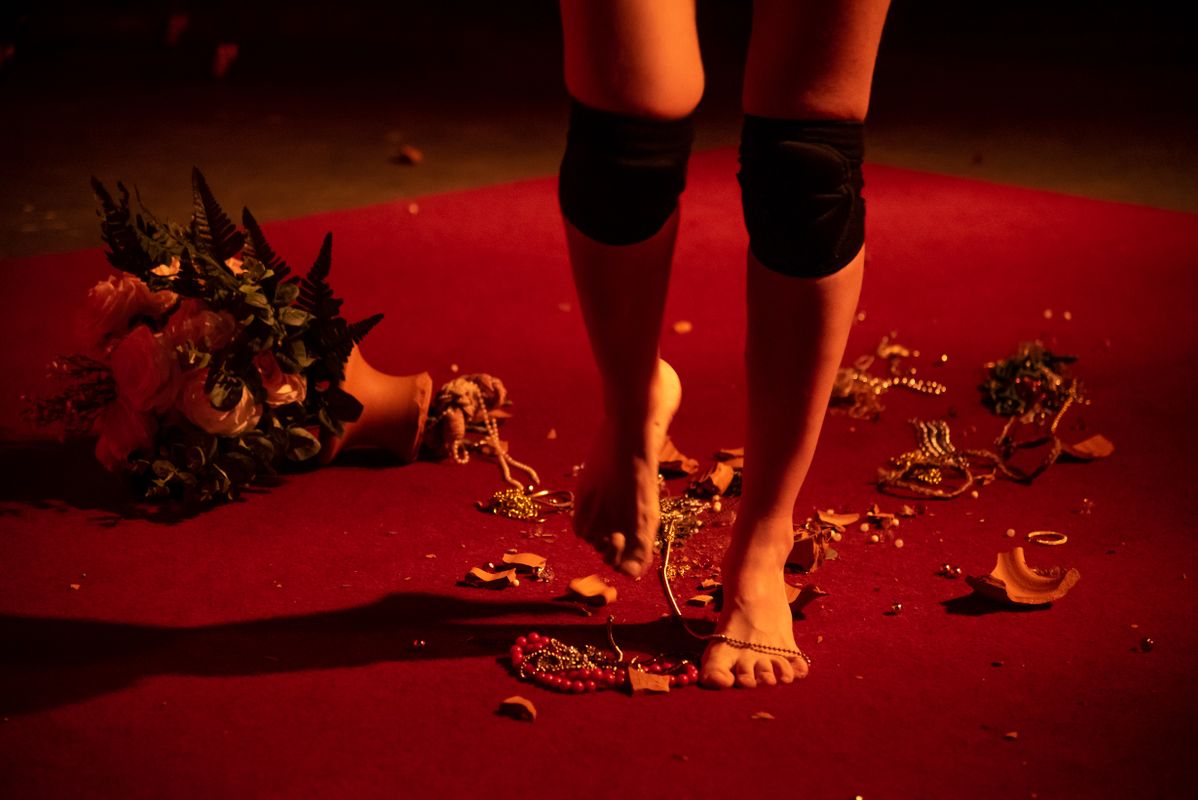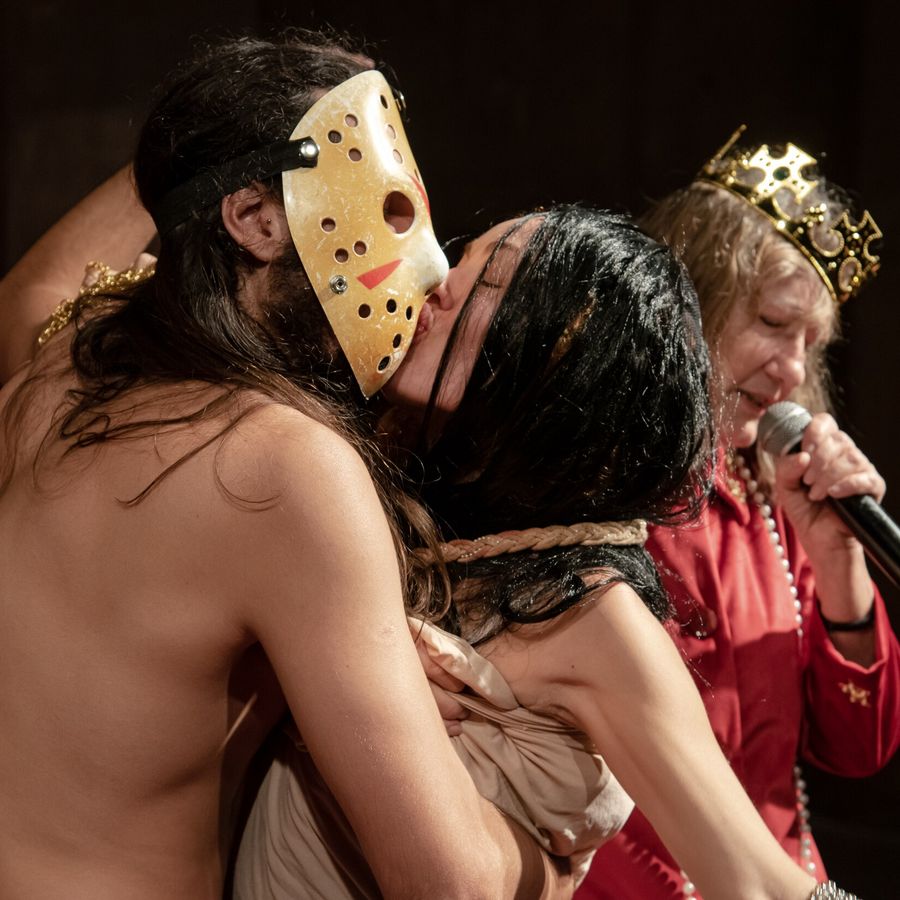
Holland Festival: Stabat Mater
-
Sat 22 Jun ’2420:30PremièreFrascati, AmsterdamFrascati 1
-
Sun 23 Jun ’2416:00Frascati, AmsterdamFrascati 1
Credits
creation Janaina Leite director Janaina Leite dramaturgy Janaina Leite, Lara Duarte, Ramilla Souza dramaturgy collaboration Lillah Hallah performance Janaina Leite, Amália Fontes Leite, Priapus special participation amateur Priapus (Lucas Asseituno) professional Priapus (Loupan) assistent direction Lara Duarte subtitles Lara Duarte art director Melina Schleder set designer Melina Schleder costume design Melina Schleder light design Paula Hemsi video installation Laíza Dantas editing Laíza Dantas sound design, sound and video engineering Lana Scott lighting technician Maíra do Nascimento vocal coach Flavia Maria Campos video participation Alex Ferraz, Hisak, Jota, Kaka Boy, Mike, Samuray Farias scenic input Kênia Dias, Maria Amélia Farah audio-visual conception and script Janaina Leite, Lillah Hallah cinematography Wilssa Esser photos and videos André Cherri project manager Metropolitana Gestão Cultural communication Carla Estefan project management Gestão Cultural diffusion Gestão Cultural
About the maker
Janaina Leite (São Paulo, 1981) is an actress, director and playwright. She is one of the founders of the award-winning Grupo XIX de Teatro in Sao Palo, with whom she creates a range of pieces that tour at home and abroad with great success. Her research into documentaries and the use of autobiographical material on stage resulted in a book, Autoescrituras performativas: do diario à cena, and various theatre pieces: Festa de Separação: um documentário cênico, Conversas com meu Pai and Stabat Mater. The taboos surrounding female sexuality have been an integral part of her theatre work and artistic research.
Leite is a founder and coordinator of the study groups Feminino Abjeto 1, Memórias, Arquivos e (Auto) Biografias and Feminino Abjeto 2. She lectures at various European universities, including the Sorbonne in Paris, on her research and methodology.
Building on her research into theatre and pornography that started with Stabat Mater, Leite made the virtual show Camming 101 noites en História do Olho - um conto de fadas pornô-noir. Currently, Leite is part of a programme for Latin-American playwrights in Buenos Aires. Her latest project Deeper, which explores virtual reality, psychosis and altered states of consciousness, was featured at the last Edinburgh Festival.



